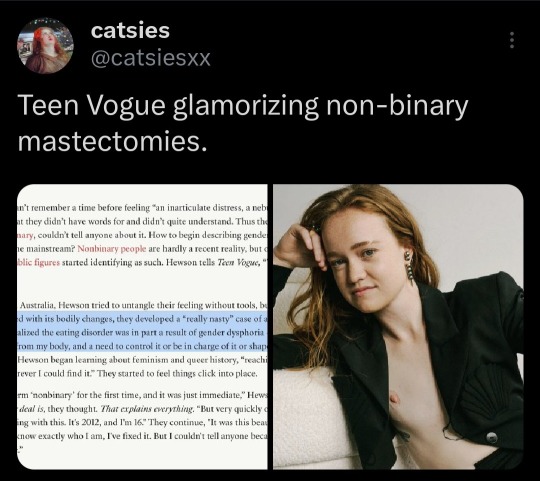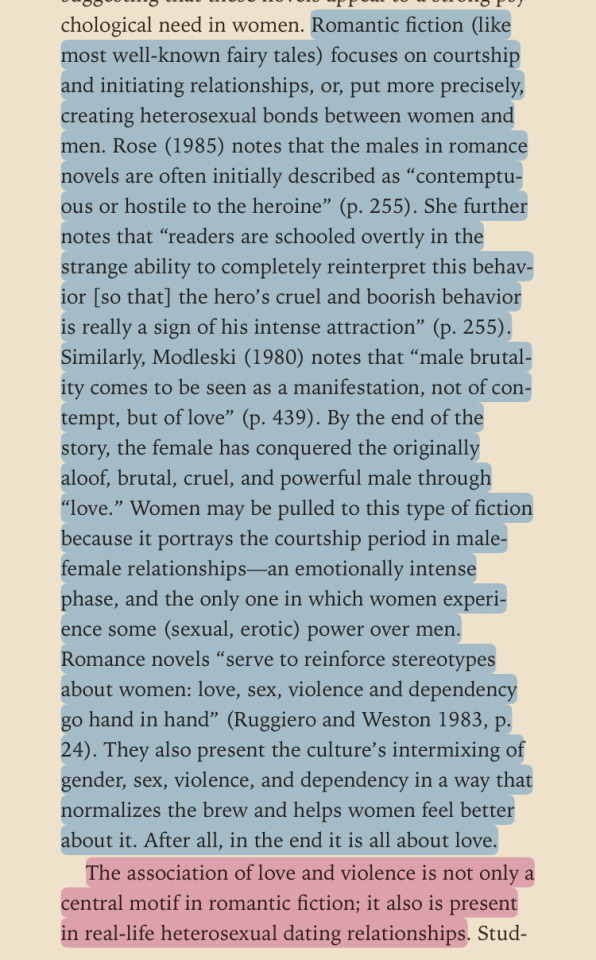Text
Something happened in my English class that I think perfectly sums up how so many people don't understand feminism.
At the beginning of each class, we have to talk about something in english for two minutes. This woman decided to talk about radical feminism in South Korea. She explained how feminists there decide not to date men, have sex with men, marry men and have kids with men anymore. It was very interesting and well explained, and I was happy to see another woman from my uni talking about feminism. From what I understood, she's not Korean but goes to Korea often and has a lot of radical feminists friends there.
Then another woman raises her hand and asks "don't you think these rules are a little bit tough?". I roll my eyes, but the other woman is confused. She frowns. "What rules? What are you talking about?". "I mean, the not dating men rule. Isn’t it a bit too tough?". "Well of course it's tough for the men but that's the goal isn’t? Feminism has to be a bit tough to men in order to work". She really didn't seem to understand what that other woman meant, and the other was apparently confused about it. "I mean for the women... for the Korean women. Aren't these rules too tough for Korean feminists? Isn’t there a way to help women without giving them such hard rules to follow?".
I was very annoyed (so was the woman who talked about this movement in the first place) because how can you miss the point so badly? How does she think feminism works? Does she believe some sort of higher power gives Korean women rules to follow and that they get thrown in jail if they date a man? How can you describe this movement as "rules"? They aren't rules. They would be rules if Korean women were forced to obey them, if they were punished for dating men. That's not the case. What's happening is that some women decide of their own free will to stop dating men (among other things). They don't follow any rules, they freely chose to do what they do. It's about women's freedom, about women deciding what they do with their life and body. But I guess people nowadays use this concept only to defend prostitution and makeup, without understanding it in reality, when it comes to women doing things that go against what the patriarchy wants them to do.
Anyway, I find it interesting that this woman's first conclusion was that these were rules rather than free choices. This is why many people see radical feminism as a cult; they can't understand the idea of women making their own choices if those choices defy patriarchy. They think we must be some kind of cult that brainwashes them and forces them to obey and follow complicated rules, because how else can a woman decide to stop fucking men? A free woman would never do that.
932 notes
·
View notes
Text
I was hesitant to write this post, but I want to talk about why so many women and teenage girls are getting double mastectomies.
The justification a lot of trans people use for elective double mastectomies is that "top surgery" helps people feel comfortable in their bodies. Traditionally, this surgery was restricted to transmen. In the recent decade, however, nonbinary identified and even non-trans identified women have been getting mastectomies. I remember clear as day when my coworker (who identified as a "cis" woman) told me that at 18 she was planning on saving for top surgery. I myself got my breasts removed when I identified as nonbinary, having been on testosterone for 2 years.
It's important to remember that no person is born wanting surgery. Society creates conditions that are hostile to women, GNC, and gay people, and this hostility encourages a dissociated state. The body is removed from the mind - instead of the body being an intrinsic part of your personhood, a mechanism through which we experience the world, it instead becomes ornamental. This is perfectly represented by all forms of non-reconstructive cosmetic surgery, which risk people's health for entirely aesthetic reasons.
So, why do teen girls want to remove their breasts? For those of who experienced unwanted sexual advances from a young age, the answer is intuitive. Breasts are inherently sexualized. They are not seen as a vital organ that contributes to bodily function and health, but as a decoration, the only purpose of which is to attract men and feed babies. In this way, a woman's breasts do not even belong to her. When men openly gawk at a woman without a bra, when relatives grope at her as a pubescent girl, when we are exposed to an endless stream of hyper-sexualized images of women with their cleavage out, a message is sent loud and clear: existing in a female body is unsafe.
I want to make it very clear that an elective mastectomy and the practices of breast ironing are very different, but there are commonalities in the attitudes behind both. Breast ironing is done to pubescent girls in order to "prevent" her being sexually assaulted or harassed by men, sometimes including male relatives. When I hear stories of girls in the West starving themselves and binding to hide their chests, I can't help but see similarities. When I was binding and restricting calories as a 15 year old, I would have said I was doing it so that I could pass as a man. But I would have been lying to you. I was lying to myself. I didn't hate my breasts because I was "born in the wrong body." I hated my breasts because they were used to justify my sexualization. From my perspective they put me in danger.
We often hear that women's rights in the West have been secured, but you need only look at the war on women's bodies to see that that is a fantasy. When young girls constantly receive the messaging that your curves and boobs WILL attract men and that you will be objectified for it, many will try to opt out.
Take Liv Hewson, for example.


She says herself that her anorexia was a manifestation of "gender dysphoria," but the question remains - where did this dysphoria come from? Why would anorexia develop as an outlet for it? What makes more sense: a young woman was born hating her body and her breasts because she has a gendered, non-female soul, or that same woman hates her body because she has been conditioned as such by a patriarchal society, the same society that encourages extreme self harm and body modification through a multi-billion dollar cosmetic industry?
Gender dysphoria in young women needs to be demystified. It's not special, it's not unique. It is NOT evidence that she needs invasive surgery or steroids to feel comfortable in her body. It is evidence that she is in pain. In order to address the rising rate of transition in young women, we must first acknowledge the conditions that nurture this form of self-hatred.
Transition IS a feminist issue. It is just as relevant in Western feminism as tackling the beauty industry, female sexualization, and violence perpetrated against women through porn. All of these issues are deeply interconnected. When we approach dysphoric women with compassion and encourage them to perceive their bodies as a part of themselves that deserves to remain intact and whole, rather than as their enemy, we take a necessary step towards female liberation.
342 notes
·
View notes
Text
Best Practices for Communicating about the Climate Crisis
Communication Tips
Keep it local. Focusing on bringing local solutions. You can lean into community pride to help motivate community action. And while climate change may have global impacts, emphasizing local climate impacts and benefits of local policies will resonate with more people, and feel more approachable/doable.
Stay focused on solutions. While the consequences of climate change are dire, focusing too much on how bad things could get tends to make people feel overwhelmed, hopeless and cynical – which doesn’t help them get or stay involved. Try not to give more than 1 or 2 examples of local consequences of environmental issues, then dive into how this work provides solutions.
Include your audience. Instead of using “I” or “you”, talk about what “we” need to do to turn things around. This includes using “we” when you’re talking about the government, when appropriate - after all, the government is meant to be for and of our communities.
Lean into moral values. Most people agree that we have a moral responsibility to protect our environment’s health, stability and safety for future generations, so don’t be afraid to talk about that or other values that resonate with you about this work.
Focus on tangible gains. Things like “the economy” are important, but they don’t feel as immediate as combating rising costs, protecting their and their neighbors' health, and saving money. Paint them a picture of the prosperous, stable, livable city we can create.
Project a can-do attitude. A lot of people are feeling let down by leadership at all levels, and feeling hopeless and helpless about making change. So, it’s important that you show that you and others are out here willing to really do the work - and there’s room for them to join in. Also, be sure to talk about successes.
Don’t waste time on opponents. We can't get everybody on our side. However, there are enough people that are excited about the prospect of living in a safe, sustainable community, where everyone has clean air to breathe/water to drink and a family-sustaining job that we don't need to convert opponents.
Encourage investment. Rather than framing the changes we want in terms of the drudgery of having to adapt to a bad situation, try to build excitement in the possibilities we can invest in - together. Everyone likes to feel they’re getting in on an exciting, cutting edge investment. Relatedly, be wary of statements that make people feel like they’re going to lose, rather than gain, options. Remind people that our current systems are not only unhealthy, dirty, and dangerous - they’re also ineffective.
Create immediate avenues for action. Once you’ve built up some excitement about what we can do, give people an immediate step they can take to help. Give that positive energy somewhere to go and show them how good it can feel to get involved.
Focus on what you want people to do, not what you want them to stop doing. This helps people envision change, and makes them less nervous.
Communicate respect. Keep away from stereotypes and harmful words. And when you talk about other people, be careful not to put words in their mouths.
Remember, you're not just combating ignorance, you're combating hopelessness, helplessness, and burnout!
2K notes
·
View notes
Text
i know im bitter about housing everyday and it's very annoying but it also makes me really sad to think about how it's striking across the world and women everywhere are held back because of this issue. single moms are denied rentals, women can't afford housing without a partner, women in abusive situations are trapped with their abusers because they have no where else to go, women are stuck living with violent male strangers because they can't afford anything more than a rooming house, homeless women are recruited for prositution. my aunt had to move 5 hours away after she got divorced because she could not afford housing without her husband. my mom tells me constantly that ill be fine financially if only i can find a husband. so many feminist issues rely on women having the option to alone and free of men
650 notes
·
View notes
Text
what’s the pink they put in pink lemonade that makes it so poppin
536K notes
·
View notes
Text
i highly recommend for women and girls to be intellectually curious and difficult to shame
#i am always willing to take the heat at work and ask the hard questions#i don't give a shit if people think i'm annoying or hard to work with#my coworkers are grateful that i'm doing it
67K notes
·
View notes
Text
i’m not going to start calling tiktokkers “creators” like what are they creating? new insecurities for women? the worst takes you’ve ever heard in your life?
6K notes
·
View notes
Text
I think that listening to violent true crime videos and podcasts on a regular basis is becoming a new sort of compulsive self-harm disorder among women and we need to get more eyes on studying its exact mechanisms, symptoms, and sequela before even more harm is done.
32 notes
·
View notes
Text
No offense but when I was in the trans cult they basically…lead kids to suicide or suicide ideation? Like if your parents don’t accept you and use your pronouns and let you transition, you are no longer safe there. Your life is in danger. You have to run away. Where can you run to? Make a GoFundMe. You’re homeless now. Or you don’t have the resources to leave. What else can you do? Idk but like it’s ridiculous but that’s the narrative they put into minors heads (mine) ? They emphasize the whole world validating you and when they don’t THEYRE the problem, they’re why you’re dysphoric and unsafe. They make kids feel helpless and hopeless. They exacerbate issues. No wonder those kids are so mentally fragile??? What kind of community promotes this???
4K notes
·
View notes
Text
Oh my god I have never seen a feminist so perfectly describe and analyze romance fiction. Maybe more older radfems are based and Get It but I'm sorry, most younger rads don't get this at all cause they have no exposure to this shit.

#i only read romance novels where the guy is nice#truly#if they are fighting and hate each other#or if he's a dick#why would i read that?#why would i get any enjoyment out of that
879 notes
·
View notes
Text
the thing with the tiktok girlhood barbie movie eras tour feminism is the back of my mind constantly being like. i wonder what all of you were saying about amber heard in 2022
14K notes
·
View notes
Text
my dream for every girl in her childhood is a safe home, clothes that allow mobility and confidence, assertiveness and space to make mistakes and be strong, stories and myths with strong heroines, a lot of play time, a library of women authors, scientists, deep immersion into music or art of whatever she likes, normal even pleasurable relation to food and her own body, a cyclic view of life and living, spirituality that isn't a shackle, and deep deep love for herself and the world.
17 notes
·
View notes






